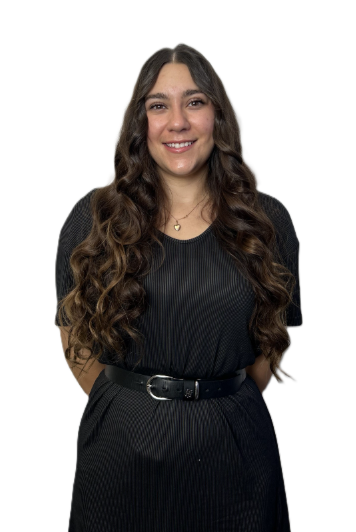Psychoeducation Clinic
Consult a psychoeducator at our psychoeducation clinic in Montreal, Brossard, or Laval, either in person at our offices, via teleconsultation, or directly in your living environment (e.g., school, home, daycare, etc.).This approach aims to understand, assess, and support individuals with adjustment issues in order to improve their quality of life and daily functioning.
Psychoeducation: services offered in Montreal, Brossard, and Laval
This health and education profession is recognized in Quebec. At CERC clinics, psychoeducators work with children, adolescents, adults, families, and groups who are experiencing difficulties in their various living environments.
Our team offers a rigorous approach, focused on the individual's real needs and on concrete interventions that can be applied in everyday life.
What is psychoeducation and how does the psychoeducator intervene?
Psychoeducators specialize in working with people experiencing adjustment difficulties, whether behavioral, emotional, relational, or developmental. They help children, adolescents, adults, groups, and seniors.
The process begins with an assessment of the psychosocial imbalance : understanding the context, needs, strengths, and weaknesses of the individual, as well as the resources and limitations of their environment. This analysis allows clear and realistic intervention objectives to be identified .
The psychoeducator then develops an intervention plan that can be applied in everyday environments. Throughout this process, they monitor the results of the interventions and work with both individuals and groups (e.g., family, work team).
This professional can also act as an advisor to parents, school teams, daycare centers, businesses, or other professionals, and offer training or conferences tailored to the needs of the community.
The challenges the psychoeducator helps meet
The psychoeducator helps children, adolescents, adults and seniors with the following challenges:
- Difficulties resulting from a significant event (e.g., separation, moving, transition, bereavement, academic motivation, work stoppage, repeating a grade, etc.) or related to the accumulation of stress factors;
- Behavioral issues: defiance, aggression, addictions (e.g., substance abuse, screen time, excessive gaming), bedwetting, etc.;
- Issues related to emotional regulation, stress, or anxiety;
- Relational issues: social skills, isolation, bullying, communication and assertiveness difficulties, sibling conflicts, co-parenting, etc.
- Mood disorders (depression, anxiety, etc.) andself-esteem issues;
- Diagnoses such as intellectual disability (ID), high intellectual potential (HIP), oppositional defiant disorder (ODD), obsessive-compulsive disorder (OCD), post-traumatic stress disorder (PTSD), attachment disorder, developmental delay;
- Conditions of neurological origin: attention deficit disorder with or without hyperactivity (ADD/ADHD); autism spectrum disorder (ASD);
Any situation that could lead to imbalance can be addressed through follow-up care, in order to restore a better balance in daily life.

To make an appointment or for any questions about psychoeducation
Our psychoeducation professionals
Open since 2003, CERC clinics now bring together more than 45 multidisciplinary professionals, backed by 22 years of expertise recognized in the media, popular book publications, and conferences offered in Canada and internationally.
Our team of psychoeducators in Montreal, Laval, and Brossard is composed of professionals who are members of the Ordre des psychoéducateurs et psychoéducatrices du Québec (OPPQ).
They help you better understand and equip you to deal with a particular diagnosis. They work in collaboration with families and, when necessary, with other professionals to guide interventions, support skill acquisition, and propose solutions adapted to the realities of each environment.
Frequently asked questions about the psychoeducation clinic
Find concise answers to your questions about our psychoeducation services.
What types of assessment and screening are often necessary in the field of psychoeducation?
Note that all these assessments are carried out by a neuropsychologist.
As part of psychoeducational follow-up, an initial assessment of the person's overall functioning is often conducted to better understand their situation, identify their strengths and challenges in daily life, and determine the factors that influence the difficulties they experience. This assessment helps guide psychoeducational interventions in a relevant way, without aiming to establish a diagnosis.
Psychoeducators can also conduct screenings when a particular issue is suspected. Screening helps identify the possible presence of certain indicators that may require referral to another qualified professional.
When a diagnostic assessment of mental disorders or neuropsychological functions is required, it is carried out by our neuropsychologists. The neuropsychological assessment focuses on cognitive, emotional, and behavioral aspects and can support the work of the psychoeducator in developing objectives and intervention strategies.
These specialized assessments, conducted by our neuropsychologists, complement the psychoeducational approach by providing an in-depth understanding of cognitive functioning. They enable consistent, personalized support from the initial assessment to the intervention plan, including longer-term family and school follow-up.
1. Learning disabilities
The assessment of learning disorders plays a central role in psychoeducation. It provides a better understanding of the specific difficulties encountered in school and their impact on the motivation, self-esteem, and overall adjustment of children and adolescents.
Learning disorders, such as dyslexia, dysorthography, or dyscalculia, can cause significant challenges in everyday life. Once these difficulties have been clearly identified, psychoeducational follow-up aims to:
- Support the development of compensatory strategies;
- Adapt academic expectations and requirements;
- Strengthen organizational, self-regulation, and perseverance skills;
- Improving the school experience and the path to greater well-being.
2. ADHD assessment
ADHD assessment is also highly relevant to psycho-education. ADHD affects many areas of daily life, including school performance and social relationships. A psycho-educational assessment can help identify these difficulties and put in place strategies to better manage attention, impulsivity and hyperactivity.
3. ASD assessment
TheASD assessment helps psychoeducators understand an individual's specific needs in terms of communication, social behavior and emotion management.
4. Neuropsychological assessment
Carried out by neuropsychologists,neuropsychological assessment is also relevant in psychoeducation when it comes to understanding an individual's overall cognitive profile.
What is an adjustment problem?
A difficulty in adapting corresponds to a significant gap between a person's functioning and what might be expected given their age, gender, development, and life context. This gap may also manifest itself in a deterioration of normal functioning or in difficulty responding to the demands of the environment (family, school, childcare, professional, or social).
The psychoeducator intervenes equally:
- As a preventive measure, to reduce the risk of aggravation;
- For curative or rehabilitative purposes, in order to restore balance and support adaptation.
Just as a physiotherapist assesses and intervenes at the level of physical functioning, a psychoeducator assesses and intervenes to restore and/or develop the person's adaptive capacities at the behavioral, social and/or emotional levels.
How are psychoeducators trained?
The psychoeducator has completed graduate studies (Master's degree) in psychoeducation, and has experience in difficult personal and social environments.
They are members of the Ordre des Psychoéducateurs et Psychoéducatrices du Québec (OPPQ) and are required to comply with the requirements set by the Order. At CERC, our team is a true clinical force, recognized for the quality of its interventions and its rigorous approach.
Are psycho-education costs covered by insurance?
The cost of psychoeducation sessions is covered by some insurance programs; however, if it is not covered by your current insurance, it is tax-deductible, since it is a special education service.
If you have any questions about your coverage or the steps you need to take, please do not hesitate to contact us: our team will be happy to assist and guide you.








.png)

